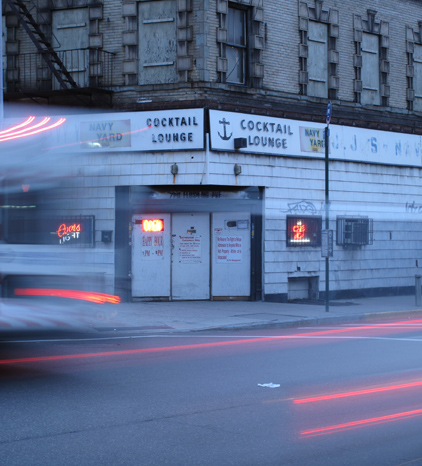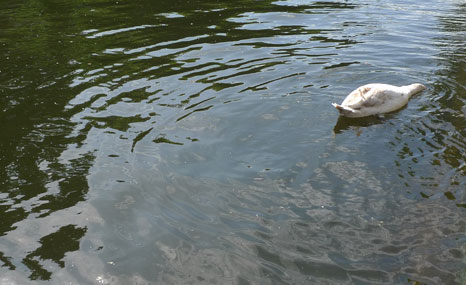wasted time, excessive time, suspended time, comrades
“But when we begin to question our projects, to doubt or reformulate them, the present, the contemporary, becomes important, even central for us. This is because the contemporary is actually constituted by doubt, hesitation, uncertainty, indecision—by the need for prolonged reflection, for a delay. We want to postpone our decisions and actions in order to have more time for analysis, reflection, and consideration. And that is precisely what the contemporary is—a prolonged, even potentially infinite period of delay. Søren Kierkegaard famously asked what it would mean to be a contemporary of Christ, to which his answer was: It would mean to hesitate in accepting Christ as Savior. The acceptance of Christianity necessarily leaves Christ in the past. In fact, Descartes already defined the present as a time of doubt—of doubt that is expected to eventually open a future full of clear and distinct, evident thoughts.”
–boris groys, comrades of time
Posted by f | reply »ideas about karaoke
recorded at Lee Kit’s “Someone singing and calling your name”, december 2009
Posted by 丫 | reply »Zürich night
Photo courtesy of Nic Shepherd
Some 15 minutes after having been abandoned at the Perla Mode by an American living in Zürich, I found him again at another opening at a small exhibition space called Les Complices. He made some comment about how I was typically Canadian because of the desire I expressed (which admittedly had structured my last 5 years) to keep going out rather than back to North America. I had not assigned value to my statement, and in my view it could indeed be taken as a lack of control and capriciousness. The space, which had a DJ playing, was a queer art space. I was not sure if my jocular, drunk brotherness was appreciated, and I was in the mood to joke. Out front one of the drunk women, who turned out to be a Canadian from Montreal, tried to convince her acquaintances to go out to a non-gay place to dance. She appeared to be quite drunk, and unless I was mistaken, the other two were not very fond of her. She had pimples. The other two returned to their friends inside and I was left, so she asked me and I thought, why not, I’d like to go dancing. We walked arm in arm down the street to a place right on Langstrasse. She joked with the bouncer who tried to remain stern, they were obviously familiar with each other, and it made me feel that this was a small town. Inside it was hip hop night, and various large men rocked back and forth in the red velvet surroundings. She knew someone (although they claimed they hadn’t known each other before) and they began talking. She asked me to buy her a drink, but I really had no money on me. This other girl seemed to be looking for someone to go home with. They asked me if I wanted to fuck, said that it was what everyone in the room wants. I joked that I was a virgin and the girl believed me, appeared to take pity on me, which made me uncomfortable – when I retracted the statement she asked me what kind of lover I was. I motioned to some of the large men standing near the turntables “maybe they want to fuck.” She considered this and went to see about it. When the lesbian’s back was also turned I used the opportunity to slip out the front door with my backpack on. I walked home along the vacant street car lines. I kept thinking of the girl’s sad expression when she said she came to the bar quite regularly, but no one had interest in fucking her. It made me kind of sad too.
[courtesy of Michael Eddy, October 2009]
Posted by secretary | reply »all that glitters
 (for 邓利ã€æ¨é¸½ã€é™ˆå»¶å¨œ and 陈芳,on participation and parting)
(for 邓利ã€æ¨é¸½ã€é™ˆå»¶å¨œ and 陈芳,on participation and parting)
In an exergue to the collection of poems she entitled Requiem, Anna Akhmatova recounts how her poems were born. It was in the 1930s, and for months and months she joined the line outside the prison of Leningrad, trying to hear news of her son, who had been arrested on political grounds. There were dozens of other women in line with her. One day, one of these women recognized her and, turning to her, addressed her with the following simple question: “Can you speak of this?” Akhmatova was silent for a moment and then, without knowing how or why, found an answer to the question: “Yes,” she said, “I can.”
As Agamben notes, “I can” here does not mean a conviction of the possession of certain capacities that guarantee success in ‘describing’ the indescribable, but a radical acceptance of “the hardest and bitterest experience possible: the experience of potentiality.”
What is set upon the stage for potentiality, where “speech”, but also a refusal to speak can take place? Where do our bodies take us that our words do not? What transitory epics are written in the face, the things that tell you to wait, to feel, to know that this mess we’ve created is greater than ourselves?
things will change soon. i know it. to say, “i wish i could describe it to you better” is to turn around the thing, over and over and over again. like words, nearer and nearing to meaning, wavering infinitely close, proximitous without sameness. Can we speak of these unnameable spaces in between the named? Can you describe them, will you ever know that silence with me here, a glittering in darkness, a deafening roaring?
(partial text and thoughts from Giorgio Agamben, Potentialities, and Where Everything is Yet to Happen; photo from OVERSEAS, close by)
Posted by 丫 | reply »sunday morning, atelier of modifications, waiting

“to wait, to make oneself attentive to that which makes of waiting a neutral act, coiled upon itself in tight circles, the innermost and outermost of which would coincide, attention distracted in waiting and returned all the way to the unexpected. Waiting, waiting that is the refusal to wait for anything, a calm expanse unfurled by steps.
he experiences the impression of being in the service of an initial distraction that would let itself be reached only when dissimulated and dispersed in acts of extreme attention. Waiting, but subordinated to that which could allow itself to be awaited.
to wait seems to signify for her the relegation of herself to a story that she would make it his obligation to carry through to the end and that must have as its outcome its progressive movement towards a goal. the attention should be exerted, so to speak, by this narrative in such a way as to draw it slowly out from the initial distraction, without which, however–he senses it well–attention would become a sterile act.
to wait: what did he have to wait for? She manifested her surprise if he asked her this question because for her, it was a word that sufficed on its own. As soon as one waited for something, one waited a little less.”
– maurice blanchot, awaiting oblivion
Posted by f | reply »“i would like to know what you are searching for.”
“- i too would like to know.
– this not knowing is rather carefree, is it not?
– i’m afraid it may be presumptuous. we are always ready to believe ourselves destined for what we seek by a more intimate, a more significant relation than knowing. knowledge effaces the one who knows. disinterested passion, modesty, invisibility: these are what we risk losing by not just knowing.
– but we will also lose certitude, a proud assurance. behind the face of the man of science, impersonal and as though effaced, there is the terrible flame of absolute knowledge.
– perhaps. nonetheless, this flame does not fail to glimmer everywhere there are eyes. i see it even in the unseeing eyes of statues. uncertainty does not suffice to render modest men’s efforts. but i admit that the ignorance in question here is of a particular kind. there are those who seek, looking to find-even knowing they will almost necessarily find something other than what they are searching for. there are others whose research is precisely without an object.
– i remember that the verb to find [trouver] does not first of all mean ‘to find,’ in the sense of a practical or scientific result. to find is to turn, to take a turn about, to go around. to come up with a song is to turn a melodic movement, to make it turn. no idea here of a goal, still less of a stopping. to find is almost exactly the same word as to ‘seek’ [chercher], which means to ‘take a turn around.’
– to find, to search for, to turn, to go around: yes, these are words indicating movement, but always circular. it is as though the sense of searching or research lay in its necessary inflection in turning. ‘to find’ is inscribed upon the great celestial ‘vault’ that gave us the first models of the unmoved mover. to find is to seek in relation to the center that is, properly speaking, what cannot be found.
– the center allows finding and turning, but the center is not to be found. research would be, perhaps, that rash seeking determined always to reach the center instead of being content to act in response to its point of reference.
– a hasty conclusion all the same. it is true that the turning movement of research resembles the movement of a dog that, when its prey is motionless and menacing, believes it has captured its prey by encircling it, while in fact it remains solely under the fascination of the center to whose attraction it submits.
– the center, as center, is always safe.
– searching and error, then, would be akin. to err is to turn and to return, to give oneself up to the magic of the detour. one who goes astray, who has left the protection of the center, turns about, himself adrift and subject to the center, and no longer guarded by it.
– more accurately, he turns about-a verb without complement; he does not turn around some thing or even around nothing; the center is no longer the immobile spur, the point of opening that secretly clears the space of advance. one who goes astray moves steadily ahead and stays at the same point; he exhausts himself while under way, not advancing, not stopping.
– and he is not at the same point, although being there by returning. this is worth considering. the return effaces the point of departure; being without a path, error is that arid force that uproots the landscape, ravages the wilderness, ruins the site.
– an advance in the frontier regions and along the frontier of the march.
– above all, an advance that opens no path and corresponds to no opening; error designates a strange space where the hiding-showing movement of things has lost its directing force. where i am through error there no longer reigns either the benevolence of welcome or the rigor, itself reassuring, of exclusion.”
– maurice blanchot, the infinite conversation
Posted by f | more »debatable

Excerpts from 10 conversations that I have recently either been a part of or have overheard.
1. “so the 10 or less line is quicker?”
-in regards to a grocery line
2. “…you’re an artist, your tastes are refined”
3. “would you rather date someone with a head half the size of a normal one or twice the size?”
4. “…so 90’s…”
-in regards to photos of empty lots in an urban setting
5. “…let the audience fill in the blanks…”
-in regards to that anxiety-ridden moment when art leaves the studio and enters the public realm
6. “…pasta or beef?”
-on a recent flight
7. “…this country is based on individualism and the idea of not having to rely on anybody but yourself is still very much alive…”
-in regards to socialism and universal being 4 letter words in the U.S.
8. “…there is no good mexican food in NYC…”
-in regards to the most ridiculous/absolute conversation that constantly presents itself
9. “…i just learned that my new roommates entire country, that is 3 times the size of Texas, has about half the number of people than the 11211 zip code here!”
-in regards to Greenland. Not really debatable but that’s a nice combination of references
10. “…then maybe failure doesn’t exist?”
-in regards to learning from our mistakes
Posted by joe | reply »
